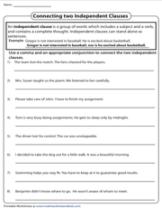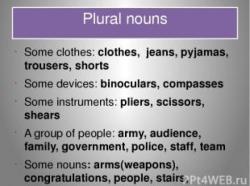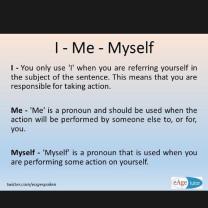How can i Improve my English writing?
Improving your English writing skills takes practice, dedication, and a systematic approach. Here are several strategies and techniques to help you enhance your English writing:
Read Regularly:
- Exposure to well-written English is essential for improving your writing. Read a variety of materials, including books, articles, essays, and blogs. Pay attention to sentence structure, vocabulary, and writing styles.
Write Every Day:
- Establish a writing routine. Set aside time each day to write. Whether it's journaling, creating short stories, or blogging, consistent practice is key to improvement.
Expand Your Vocabulary:
- Work on expanding your vocabulary by learning new words and phrases. Use a thesaurus to find synonyms and enhance the variety of words in your writing. Be mindful of context when incorporating new vocabulary.
Grammar and Punctuation:
- Review and strengthen your understanding of grammar rules and punctuation. Resources such as grammar guides, online tutorials, and writing style manuals can help you improve your grasp of English grammar.
Take Writing Courses:
- Consider enrolling in writing courses, either online or in-person. Many platforms offer free or paid courses that cover various aspects of writing, from grammar and style to creative writing.
Join Writing Workshops:
- Participate in writing workshops or join writing groups where you can share your work and receive feedback. Constructive criticism from peers can provide valuable insights into areas for improvement.
Edit and Revise:
- Develop the habit of editing and revising your writing. After completing a draft, take the time to review and refine your work. Pay attention to clarity, coherence, and overall structure.
Set Writing Goals:
- Set specific and achievable writing goals. Whether it's writing a certain number of words each day or completing a short story by the end of the week, goals provide direction and motivation.
Imitate Great Writers:
- Choose a writer you admire and analyze their writing style. Try to imitate their techniques and incorporate them into your own writing. This can be a helpful exercise in learning different writing styles.
Use Writing Prompts:
- Writing prompts can stimulate creativity and help you overcome writer's block. Explore a variety of prompts and use them as a starting point for your writing exercises.
Seek Feedback:
- Ask for feedback from teachers, peers, or writing groups. Constructive criticism can highlight areas for improvement and provide suggestions for enhancing your writing skills.
Proofread Thoroughly:
- Develop strong proofreading skills to catch errors in spelling, grammar, and punctuation. Take the time to carefully review your writing before finalizing it.
Learn from Mistakes:
- Embrace mistakes as learning opportunities. When you receive feedback, use it to identify areas of weakness and make a conscious effort to improve.
Use Writing Apps and Tools:
- Take advantage of writing apps and tools that can help you with grammar, spelling, and style. These tools can serve as valuable resources for self-editing.
Be Patient and Persistent:
- Improvement takes time, so be patient with yourself. Celebrate small victories, stay persistent, and continue to challenge yourself with new writing tasks.
Remember that improvement is a gradual process, and consistent practice is key. Whether you're focusing on academic writing, creative writing, or professional communication, integrating these strategies into your routine can contribute to significant progress over time.
What practical steps can I take to improve my English writing abilities?
Here are some practical steps you can take to improve your English writing abilities:
Increase your Reading:
- Read widely and consistently: Immerse yourself in various forms of writing, including novels, short stories, articles, essays, and poetry. This exposes you to different writing styles, vocabulary, and grammatical structures, subconsciously improving your own writing.
- Read actively and critically: Don't just passively read, but analyze the text, pay attention to sentence structure, vocabulary usage, and how the writer conveys their message. Ask yourself questions about the author's choices and try to identify the techniques they use.
- Read aloud: Reading aloud helps you hear the rhythm and flow of the language, identify any awkward phrasing, and improve your pronunciation and intonation.
Actively Practice Writing:
- Write regularly: Make writing a daily habit, even if it's just for a short period. This helps you develop fluency, improve your stamina, and experiment with different styles.
- Keep a journal: Journaling allows you to explore your thoughts and ideas freely, practice expressing yourself, and develop your writing voice.
- Participate in online writing communities: Join online writing forums or communities where you can share your work, receive feedback from other writers, and learn from their experiences.
- Write for different audiences and purposes: Try writing in different genres and styles, like fiction, poetry, or persuasive writing. This helps you become versatile and adapt your writing to different situations.
Focus on Specific Areas:
- Grammar and Mechanics: Regularly review and practice grammar rules, punctuation, and sentence structure to ensure your writing is clear, accurate, and grammatically correct.
- Vocabulary Building: Actively learn new words and their usage through flashcards, vocabulary apps, or reading challenging material. Incorporate these new words into your writing to improve your vocabulary range and expression.
- Style and Clarity: Pay attention to the flow and clarity of your writing. Ensure your sentences are concise, easy to understand, and convey your message effectively.
- Revision and Editing: Never submit your writing without thorough revision and editing. Check for grammar errors, typos, awkward phrasing, and areas for improvement. Read your work aloud to identify any inconsistencies or unclear passages.
Seek Feedback and Guidance:
- Get feedback from others: Share your writing with friends, family, writing instructors, or online communities for constructive feedback. This helps you identify areas for improvement and gain different perspectives on your work.
- Take online courses or workshops: Consider enrolling in online courses or workshops on writing specific skills or techniques. This can provide you with focused learning and guidance from experienced instructors.
- Hire a writing tutor: Working with a writing tutor provides personalized feedback, guidance, and tailored exercises to address your specific needs and weaknesses.
Additional Resources:
- Grammarly: This online tool helps identify grammar errors, typos, and stylistic issues, improving the overall quality of your writing.
- Hemingway Editor: This app analyzes your writing for clarity, conciseness, and readability, providing suggestions for improvement.
- ProWritingAid: This software offers a comprehensive suite of tools for grammar correction, style analysis, and plagiarism detection.
Remember, improving your writing takes time and consistent effort. Be patient, practice regularly, and don't be afraid to experiment and learn from your mistakes. By actively engaging with the language and seeking feedback, you can steadily improve your English writing abilities and achieve your desired level of proficiency.













